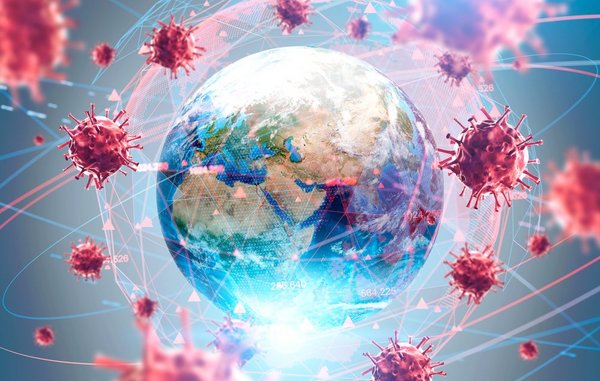 Read this article in French
Read this article in French- Share this article
- Subscribe to our newsletter
German government to focus more on One Health aspect
Some 30 million euros from the Emergency COVID-19 Support Programme are to be used for targeted pandemic prevention and international cooperation. This was announced by Development Minister Gerd Mueller at the World Health Summit in late October. One Health was going to become a focal issue at the Federal Ministry for Economic Cooperation and Development (BMZ).
"In view of of the COVID-19 pandemic, we will massively expand the priority area One Health and pandemic prevention,” Mueller said.. “Parliamentary State Secretary Maria Flachsbarth is to coordinate our international cooperation as the BMZ's Commissioner for global health and One Health.”
Mueller further explained that the BMZ was initially investing 30 million euros from its global Emergency COVID-19 Support Programme into the One Health approach. This funding would be used to set up a first One Health pandemic centre in Kenya to promote knowledge sharing on human and animal health. “Wwe are strengthening food safety and early detection of zoonoses in food production together with the World Bank,” Mueller added. “This is an urgent matter; virologists have identified at least 40 more viruses with the potential to cause a pandemic. As it is, as many as 2.7 million people are dying from zoonotic diseases every year. These include Ebola, AIDS, avian flu and COVID-19."
Climate change, increasing mobility, human encroachment into formerly pristine habitats, industrial agriculture and intensive livestock farming are factors that allow pathogens – both old and new – to spread more rapidly. The COVID-19 pandemic demonstrates how the local outbreak of a disease having emerged from an animal source quickly turned into a global threat.
Parliamentary State Secretary Maria Flachsbarth stated that the situation was extremely challenging worldwide – more than 43 million people had contracted COVID-19, and more than 1.1 million people had died. “We need to find better solutions and strengthen the One Health triad of human health, animal health and a healthy environment,” Flachsbarth noted. “And, COVID-19 will not be the last pandemic.
The one lesson we have to learn from COVID-19 is that the international community needs to work together more closely in future to combat a pandemic, develop diagnostics, vaccines and drugs, and prevent pandemics in the future. That is why we have set up a new One Health Directorate to fight pandemics; it will enable us to integrate our projects more closely with each other and get new initiatives off the ground – on human and animal health, healthy food and agriculture, access to safe drinking water and protecting biodiversity."
One Health – the triad between human and animal health and a healthy environment
"The current pandemic is a reminder of the importance of One Health,” stated Professor Thomas C. Mettenleiter of the Federal Research Institute on Animal Health (FLI) at the World Health Summit. “The pathogen originated in animals, spilled over to humans and is transmitted back to animals. Three quarters of newly emerged human infectious diseases originate in animals. This is where the One Health approach comes in to reduce risky contacts between animals and humans. One Health is a cross-sectoral holistic approach that recognises the links between the health of people, animals and the environment. Antimicrobial resistance and zoonoses are two key topics that are addressed under the One Health approach."
(BMZ/wi)
More information:
Emergency COVID-19 Support Programme of the Federal German Government





Add a comment
Be the First to Comment